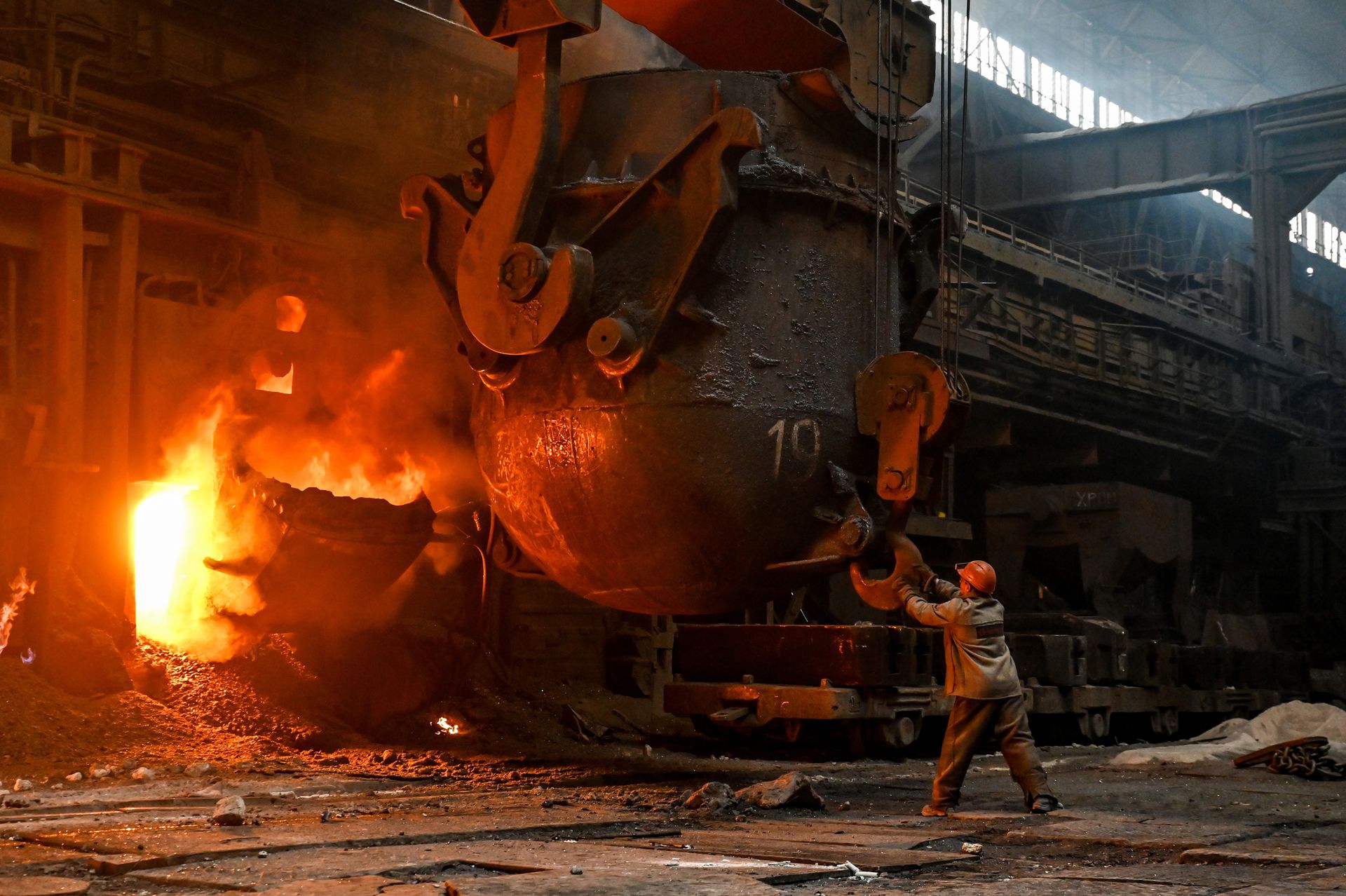'Question of self-preservation' — Baltic states move to curb Moscow's sway over their Russian speakers
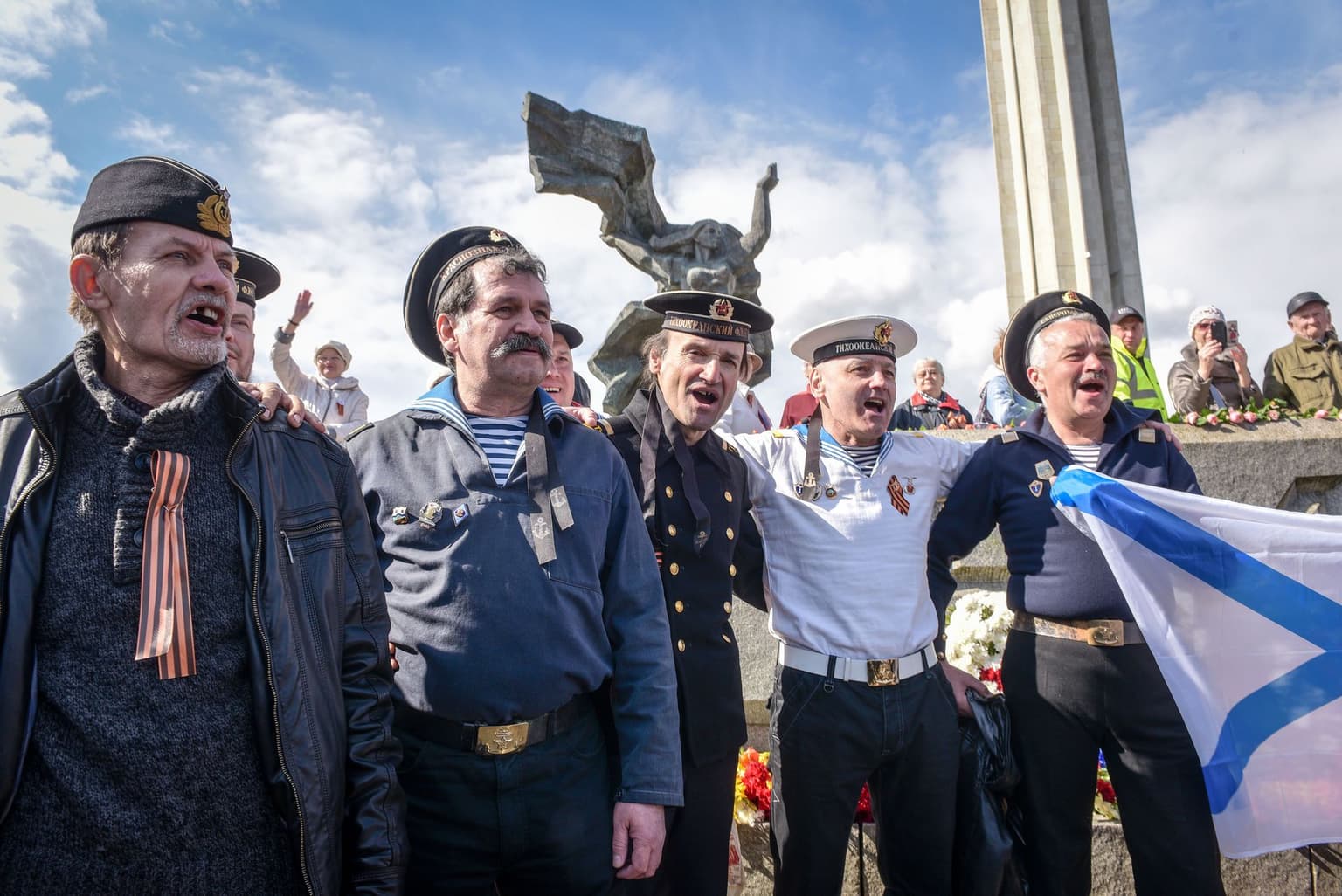
Men dressed in military uniforms with soviet insignia gather near the monument to the Soviet Army in Riga, Latvia, on May 9, 2017. (Ilmars Znotins / AFP via Getty Images)
As Moscow steps up its hybrid onslaught against the Baltic states, local Russian-speaking populations present a potential weak spot to exploit.
Russian is the mother tongue of roughly one-quarter and one-third of the populations of Estonia and Latvia, respectively, two small nations at NATO's eastern frontier.
Adopting a "wartime" mentality — fueled by the war in Ukraine and Russian aerial incursions — Tallinn and Riga increasingly see this minority as a potential risk, says Vendula Kazlauskas, an expert on the Baltic region at the Prague-based Association for International Affairs.
Seeking to curb Moscow's influence, Latvia and Estonia are phasing out the Russian language in education, tightening immigration rules, and targeting Russian-linked organizations.
These steps are driven both by security concerns and by the need for a "greater integration of the Russian-speaking minority," Kazlauskas explains.
Weaponizing the diaspora
After enjoying three decades of independence, the Baltic states — Estonia, Latvia and Lithuania — were occupied by the Soviet Union in 1940. Following the end of World War II, while not recognized by the West, it remained in place until the 1990s.
The large Russian-speaking and ethnically Russian populations in the Baltic states are primarily the result of forced resettlement, immigration, and Russification policies implemented during the Soviet era.
Many Russian speakers in Latvia and Estonia remain stateless or hold Russian passports. Roughly 40,000 people in Latvia are Russian citizens, and over 80,000 in Estonia.
It's their own choice.
Those living in Latvia and Estonia can obtain a local passport and integrate if they pass the citizenship test, which narrows down to language proficiency and knowledge of the country's history.
Analysts say Russia has long been employing propaganda to target Russian speakers in the Baltics — some of whom have little knowledge of local languages — to sway public opinion and sow division.
"Russia persistently seeks to influence Estonia's Russian-speaking community," Igor Gretskiy, a researcher at the Tallinn-based International Center for Defense and Security (ICDS) think tank, told the Kyiv Independent.
"To that end, Russia weaponizes virtually every sphere of human activity: language, culture, sports, and so on."
Marek Kohv, a former Estonian defense official and a security expert at the ICDS, adds that Russia is using social media and online portals to promote narratives about the "decline of the West" and alleged oppression of Russian speakers.
These efforts only gained pace when Moscow launched its all-out aggression against Ukraine.
In Moscow's shadow
"After Russia's full-scale invasion of Ukraine in 2022, we have seen a significant intensification of (Russian) influence activity in Estonia," Joosep Kaasik, the deputy secretary general for Internal Security at Estonia's Interior Ministry, told the Kyiv Independent.
In both Estonia and Latvia, attitudes toward the war in Ukraine vary notably between Russian-speaking and national-language communities.
Surveys showed that the Russian-speakers are less likely to blame Russia for the start of the war and are more skeptical about Ukraine's chances to liberate its territory than their compatriots.
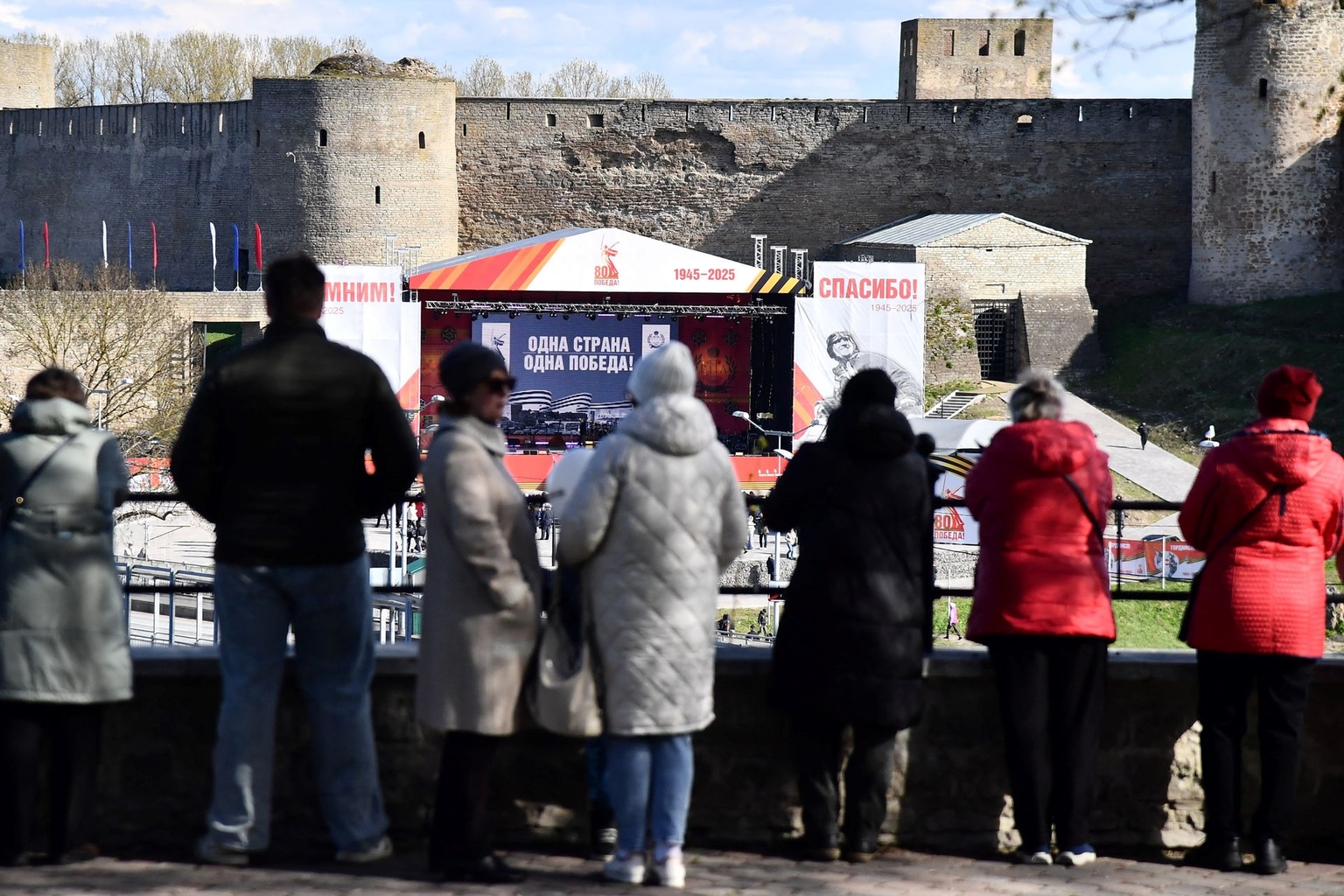
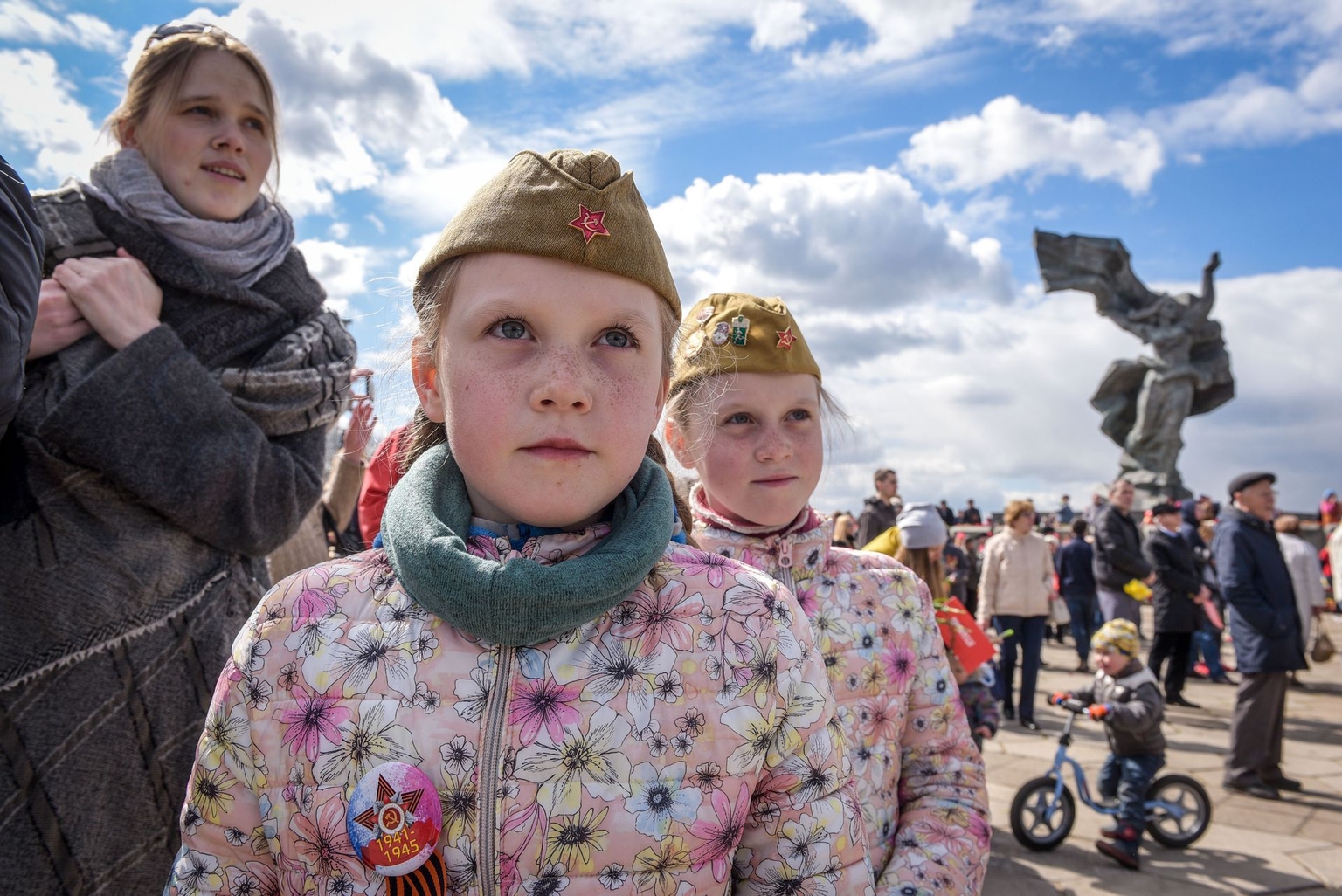
Yet the Russian-speaking minorities in the Baltics are far from monolithic.
The 2025 yearbook by KAPO, Estonia's internal security agency, says that the Kremlin's support base in the country is primarily composed of older residents and is dissipating rapidly.
Reacting to this development, Russia "seeks to engage Estonia's Russian-speaking youth and draw them into its informational and value sphere," Kohv told the Kyiv Independent.
This propaganda campaign aligns with other hybrid operations, including cyberattacks, bomb threats, espionage, and vandalism, acts sometimes carried out by local Russians.
"We cannot – and we should not – simply ignore the fact that our population (or part of it) is systematically targeted by propaganda and disinformation by the Russian regime."
Recent weeks saw tensions surge in the region after three Russian fighter jets violated Estonian airspace on Sept. 19, just 10 days after Poland downed several Russian drones over its territory.
Russian drones have also "strayed" into the Lithuanian and Latvian airspace during past attacks on Ukraine.
As Western officials raise alarms about a possible open clash between Moscow and NATO in the coming years — a conflict where the Baltics would be at the front line — Riga and Tallinn try to ensure their entire populations are on their side.
Countering Russian influence
After the all-out war in Ukraine broke out, both Latvia and Estonia took steps to better integrate their Russian-speaking minorities — a strategy that drew ire from Moscow.
The Latvian parliament amended its immigration laws in 2022 and again in 2024, mandating that Russian nationals living in the country pass a basic language test and undergo a security check.
Around 2,600 Russian citizens left the country in response, while 841 who failed to meet the requirements are facing deportation.
Estonia, in turn, barred non-EU citizens from voting in local elections, a move that primarily affected Russian citizens who did not have local passports.

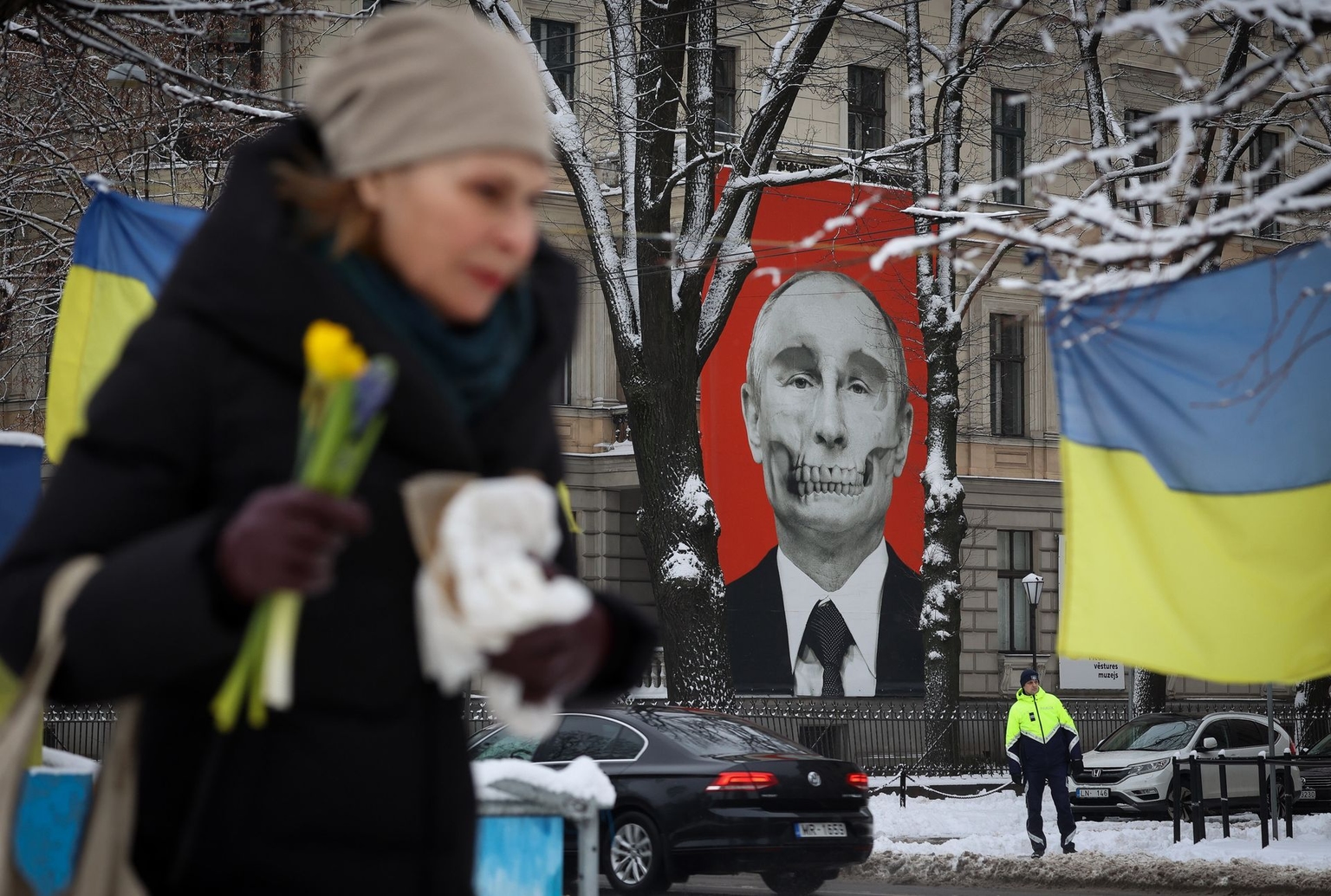
Latvia passed a law on the separation of the Latvian Orthodox Church from the Russian Orthodox Church in 2022, while Estonia approved similar legislation three years later.
The two countries are also phasing out Russian as the language of instruction in education to improve national language skills.
"However, the steps taken by both countries are a double-edged sword," Kazlauskas says.
"While understandable given their internal situation, security concerns, and historical experience," Russian propaganda can use them to "justify the need to 'protect' oppressed Russian-speaking compatriots — potentially serving as a pretext for aggression."
Criticism came even from the West, as the Council of Europe chastised both countries over their new language laws.
But local authorities say firmly that these efforts are aimed at safeguarding national security and social cohesion.
"We cannot – and we should not – simply ignore the fact that our population (or part of it) is systematically targeted by propaganda and disinformation by the Russian regime," Estonia's Kaasik told the Kyiv Independent.
"For our small nation, countering this long-term threat is a question of self-preservation."
Author's note:
Hi, this is Martin Fornusek, the author of this article.
As Russia ramps up its aggression in Ukraine, it also seeks to sow division and doubt abroad — including among Ukraine's closest allies.
Supporting honest and fact-based reporting is now more important than ever. Help our work by joining the Kyiv Independent community.



